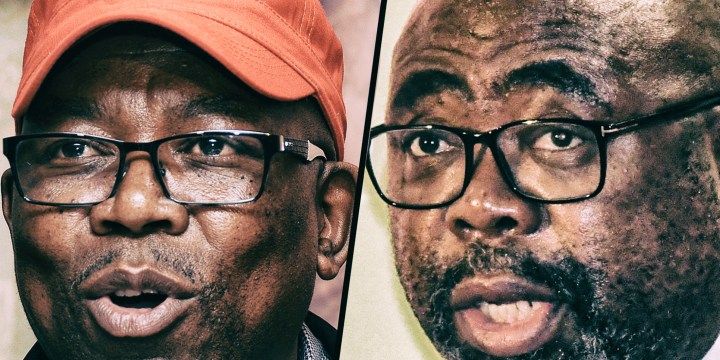ECONOMIC CONUNDRUMS
While SA suffers multiple crises, Nedlac summit offers few answers

‘People are tired of hearing that we are in a crisis… of being told that we’ve got over 10 million people unemployed… 17 million on social grants… people want to hear what is the solution’ — Cosatu’s Bheki Ntshalintshali at the National Economic Development and Labour Council’s 27th summit.
The 27th National Economic Development and Labour Council (Nedlac) summit in Johannesburg heard more questions than it answered. How does Nedlac engage more constituencies to truly affect change? How will stability and regulation be created in the gig economy? Is Nedlac positioning itself to help lead the workforce into the fourth industrial revolution? And, is Nedlac where bills go to die?
The Nedlac annual summit provides a platform for Nedlac social partners, organised business, labour, the community and the government to reflect on the performance of Nedlac and discuss the future direction and vision of the institution.
The event discussed the impact of the changing global balance of forces on the South African economy, poverty and unemployment, and the changing world of work.
Organised labour overall convenor at Nedlac, Bheki Ntshalintshali, said the summit was only a dialogue, but the work afterwards brought solutions.
“Some of them are difficult so it takes time to come up with solutions. We can’t solve them in a meeting of this nature. We take responsibility for being part of the Nedlac family to come up with solutions. I think our approach has to change from an adversarial approach issue to some kind of solution-oriented way; if we are unable to do this ourselves we need others who can give advice,” said Ntshalintshali.
Minister of Employment and Labour Thulas Nxesi said in the opening address on Friday that the council’s role should evolve to become the pinnacle of social compacting.
“The social compact called for by President Cyril Ramaphosa in his State of the Nation Address is still a work in progress. It has not been easy. But we can take comfort from the fact that parties are engaged and have committed to finding each other. I would appeal to all social partners to continue to engage, to find areas of collaboration, to build on these, and to commit to the process,” said Nxesi.
Visit Daily Maverick’s home page for more news, analysis and investigations
Nxesi said Nedlac must be at the forefront of growing the practice of social compacting as a way of working: “We are witnessing this already starting to take place.” He paid tribute to the role played by Nedlac in executing an “all-of-society response’’ to the Covid-19 pandemic that supported businesses, workers and their families through a difficult time.
Executive director of the council Lisa Seftel acknowledged that Nedlac acted more swiftly in handling crises than with its other long-standing duties such as bill and policy facilitation.
“Nedlac is no longer a place where draft bills come to die… We have become more efficient and effective in inputting into policy and legislation, reducing times on policy legislation.”
Seftel announced that Nedlac may have a new constitution by 2025 as social partners continued to discuss and analyse if it was “fit for purpose”.
The running theme in speakers’ speeches was engaging more social groups and not “gatekeeping” access to the council from significant stakeholders. Seftel said social dialogues were a new key performance area for the organisation where information could be shared and discussed.
The Presidential Climate Commission, aimed at creating a social partnership around a just transition, will become a Nedlac project for about two years.
Sustainable employment
Nxesi said investment and robust economic activity were the only ways to bring sustainable employment. When asked if the graduate programmes resulted in permanent employment, he said “these programmes are relief measures to give graduates a foot at the door so they get skills that can help them look for permanent jobs.”
He said if a miracle happened, five million jobs could be created in the next three to five years, but even then 10 million-plus people would still be unemployed and impoverished. He applauded the Social Relief of Distress R350 grant for bringing “relief in the meantime”.
Nxesi said the big debate in the International Labour Organisation was around digitisation.
“What are you going to do with workers as you put in new technology? A glaring example is that… on a farm, you can use a tractor which does everything. Starting from ploughing, sowing, seeding, and even reaping, some don’t even need a driver. It goes a particular distance and comes back. That is a replacement of workers, so [it] means you need to reskill the workers.”
Discussions included how to regulate remote work, and what employers’ duties were now that many people did not work at their employers’ premises. Employees were complaining about the work-life balance because they couldn’t switch off and were expected to engage in work-related conversations, emails, social media, shared work documents and so forth continuously — creating an ongoing loop of being on the clock.
Executive manager of Health and Wellness at Transnet, Dr Marion Borcherds, said struggling to balance work and life had adverse effects on workers. Covid-19, the KZN floods, the July riots and other major events the country had endured had exacerbated mental health issues among workers.
Borcherds also cautioned against thinking only white-collar workers needed mental health awareness. Blue-collar workers also had mental health needs that were often not catered for in the workplace.
Also at the summit were Minister of Finance Enoch Godongwana, Minister of Small Business Development Stella Ndabeni-Abrahams and veteran business leaders such as Raymond Parsons. MC















 Become an Insider
Become an Insider
How to fix the economy is not rocket science or some secret formula, all it needs is for the ANC and socialism to get out of the way.